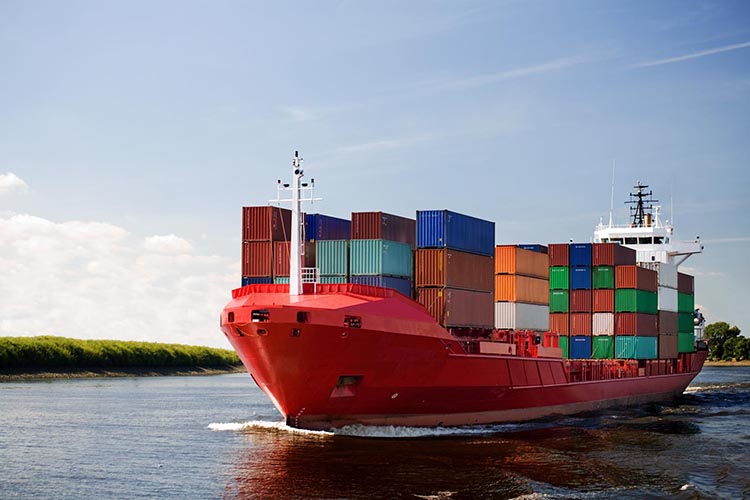
FTZ’ine August 2019
August 1, 2019
FTZ’ine October 2019
October 1, 2019ISCM Welcomes Melissa Irmen!
Decades of trade technology experience. Leading industry expert on FTZ PGA filing. Officer of the National Association of Foreign-Trade Zones. Process and change management consultant. Integration Point employee #3. Noted author and speaker on issues regarding ACE implementation. Trainer sought after on a broad range of issues related to trade compliance and the use of technology to manage it. Industry liaison to CBP and other government agencies regulating international trade.
You may know Melissa Irmen for one or all of these industry accomplishments. For these reasons and more, ISCM is very excited to announce that Melissa has joined the firm as Senior Vice President and can now share that experience with the firm’s clients across the United States and abroad.
Melissa has a deep background in global trade and Foreign-Trade Zone management with a specialty in technology and implementation. While perhaps best known for her founding role in the development of Integration Point, Melissa has worked with companies in all industries to automate their import/export operations and find savings in their trade compliance function. Congratulate her with an email or LinkedIn post!

Top Story: The Race To See Who Blinks First
US and Japan Announce Landmark Trade Deal That FTZs Notice


On a Roll – Could U.S. Trade Deal With Britain Be Next?
And Another One: U.S. Strikes Trade Deal with Mexico (Tomatoes Anyone?)


Heated Battle Over Brexit Takes Unexpected Turns

FTZ Board Activity
- EBI, LLC received authorization of production activity for mattresses and sofas within Subzone 238C in Danville, Virgina with restrictions requiring admission in privileged-foreign status for several raw materials. MORE
- Samsung Electronics America, Inc. received authorization of production activity for packaging for mobiles and tablets within FTZ 168 in Coppell, Texas. MORE
- ProAmpac Holdings, Inc. submitted a Notification of Proposed Production Activity for flexible packaging applications in a new site of FTZ 201 in Westfield, Massachusetts. MORE
- Abbott Laboratories submitted an application to expand Subzone 22F in Elk Grove Village, Illinois by adding 0,7 acres to one of its sites. MORE
- Amcor Flexibles L.L.C. submitted a Notification of Proposed Production Activity for additional components and finished products of flexible packaging in FTZ 29 in Shelbyville, Kentucky. MORE
- Airbus OneWeb Satellites, LLC received authorization of production activity for satellites and satellite systems in Foreign-Trade Zone 136 on Merritt Island, Florida. MORE
- Syngenta Crop Protection, Inc. submitted a Notification of Proposed Production Activity for additional components and finished products of herbicides, fungicides and insecticides in FTZ 19 in Omaha. Nebraska. MORE
- Syngenta Crop Protection, Inc. submitted a Notification of Proposed Production Activity for additional components and finished products of herbicides, fungicides and insecticides in FTZ 154 in Baton Rouge, Louisiana. MORE
- Patheon Puerto Rico, Inc. submitted a Notification of Proposed Production Activity for additional components and finished products of pharmaceutical products in FTZ 7 in Manati, Puerto Rico. MORE
- Michelin North America, Inc., received authorization of production activity for tire assemblies, wheel assemblies, and tire pressure monitoring systems in Site #5 of Foreign-Trade Zone 38 and Subzone 38L in Woodruff and Laurens, South Carolina. MORE
- CGT U.S., Ltd. received authorization of production activity for polyvinyl chloride coated upholstery fabric cover stock in Subzone 80E in New Braunfels, Texas. MORE
- ProAmpac Holdings, Inc. received approval for production of flexible packaging applications in FTZ 167 in Neenah and Appleton, Wisconsin. MORE
- Adams Warehousing, LLC. received approval to operate its facility in Sidney, Nebraska as Subzone 59D. MORE
- ProAmpac Holdings, Inc. submitted an application to operate its Westfield, Massachusetts facilities as a subzone of FTZ 201. MORE
- Offshore Energy Services, Inc. received approval to operate its facility in Broussard, Louisiana as Subzone 124T. MORE
- Motorambar, Inc. submitted an application to operate its Cataño, Puerto Rico facility as a subzone of FTZ 7. MORE
- Café Oro de Puerto Rico, Inc. submitted an application to operate its Lares, Puerto Rico facility as a subzone of FTZ 7. MORE
- Lam Research Corporation received authorization of production activity for wafer fabrication equipment, subassemblies and related parts in Foreign-Trade Zone 18 in Fremont, Livermore and Newark, California. MORE
ISCM Welcomes Melissa Irmen!
Decades of trade technology experience. Leading industry expert on FTZ PGA filing. Officer of the National Association of Foreign-Trade Zones. Process and change management consultant. Integration Point employee #3. Noted author and speaker on issues regarding ACE implementation. Trainer sought after on a broad range of issues related to trade compliance and the use of technology to manage it. Industry liaison to CBP and other government agencies regulating international trade.
You may know Melissa Irmen for one or all of these industry accomplishments. For these reasons and more, ISCM is very excited to announce that Melissa has joined the firm as Senior Vice President and can now share that experience with the firm’s clients across the United States and abroad.
Melissa has a deep background in global trade and Foreign-Trade Zone management with a specialty in technology and implementation. While perhaps best known for her founding role in the development of Integration Point, Melissa has worked with companies in all industries to automate their import/export operations and find savings in their trade compliance function.
Congratulate her with an email or LinkedIn post!

